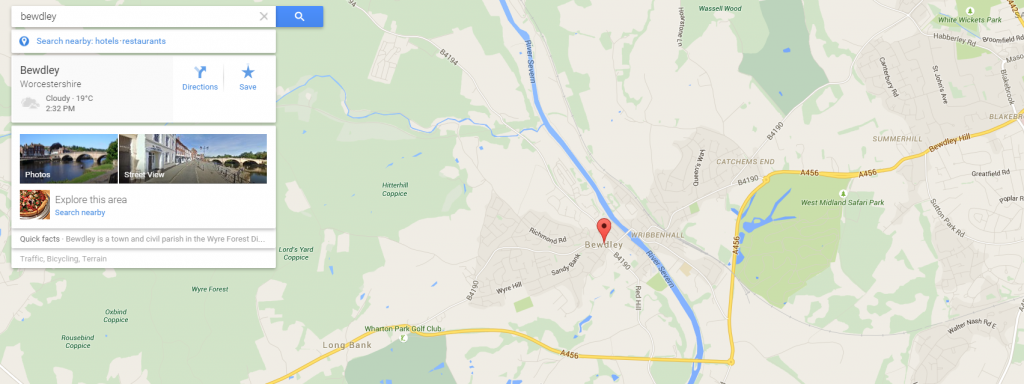Google Maps has neatly integrated itself into our everyday lives without us even realising it. It’s on most of our phones, we use it as a sat nav on foot and when driving, and it’s also often the first thing most of us turn to when we need directions, need to know the distance between two places, or want to check where in the UK a place called Bewdley is.

The Evolution of Google Maps
As time has gone by – since Google Maps became part of our everyday lives – great improvements have been made. For example, it has live traffic news knowledge now, so when you’re using it as a satellite navigation system, it updates you during the journey if it has spotted a quicker route. I really love this feature.
Google Road Quality Reporting
Now, though, Google have a brand new plan in the pipeline, which I read about on Bill Slawski’s blog – a plan to report on road quality using a system of vertical vibration vehicle sensors. The purpose of this is assumed to be linked to the safety of the Google self-driving cars, but this could benefit everyone who uses the roads. Potholes are annoying (not to mention expensive) for car and van drivers, and a menace to cyclists and motorcyclists; whilst vehicles and bikes can be damaged by road defects, those people travelling on bikes can be thrown off them and into the road. The danger is very real, yet our country’s roads are still littered with potholes and cracks.
Leeds Roads: Some of The Worst in the UK
If you live in Leeds or the surrounding area, you will no doubt be aware of the state of the roads (although it must be noted that they were improved upon in some areas in the few weeks prior to the most recent elections!) It was reported in January that it would cost £100million to deal with the road maintenance backlog alone in Leeds, let alone the new problems that are occurring every day – especially through winter, when the roads are prone to cracking.
The Government is giving councils across England £6billion over 6 years to deal with road maintenance issues, however it is clear that this figure won’t touch the work that is required; North Yorkshire alone required £300million (as of January 2015) to clear their road maintenance backlog. Leeds receives £45million for 6 years’ work. The problem continues. Alongside the roads not being fixed, there are annually more and more road users. More people who will get damaged vehicles, and more cyclists who will be in danger.
How Google Could Help
The Google plan to collect data using vibration sensors could be used to help all road users; not just passengers of the Google self-driving cars. If it were to be linked to Google Maps, the information could be combined with the current data to produce fast routes that are low-traffic and also low-risk in terms of vehicle damage or having to drive slower than the speed limit due to poor road surface. Cyclists could also plan routes to avoid the worst roads, and therefore stay safer.
Google could also help cut costs for local authorities by reporting highway conditions to them. Perhaps the money saved could help pay for the repairs themselves. Otherwise, no amount of reporting will help the situation, as it will all just be added to a never-ending ‘to-do’ list until more funding is allocated. Which is probably never.

